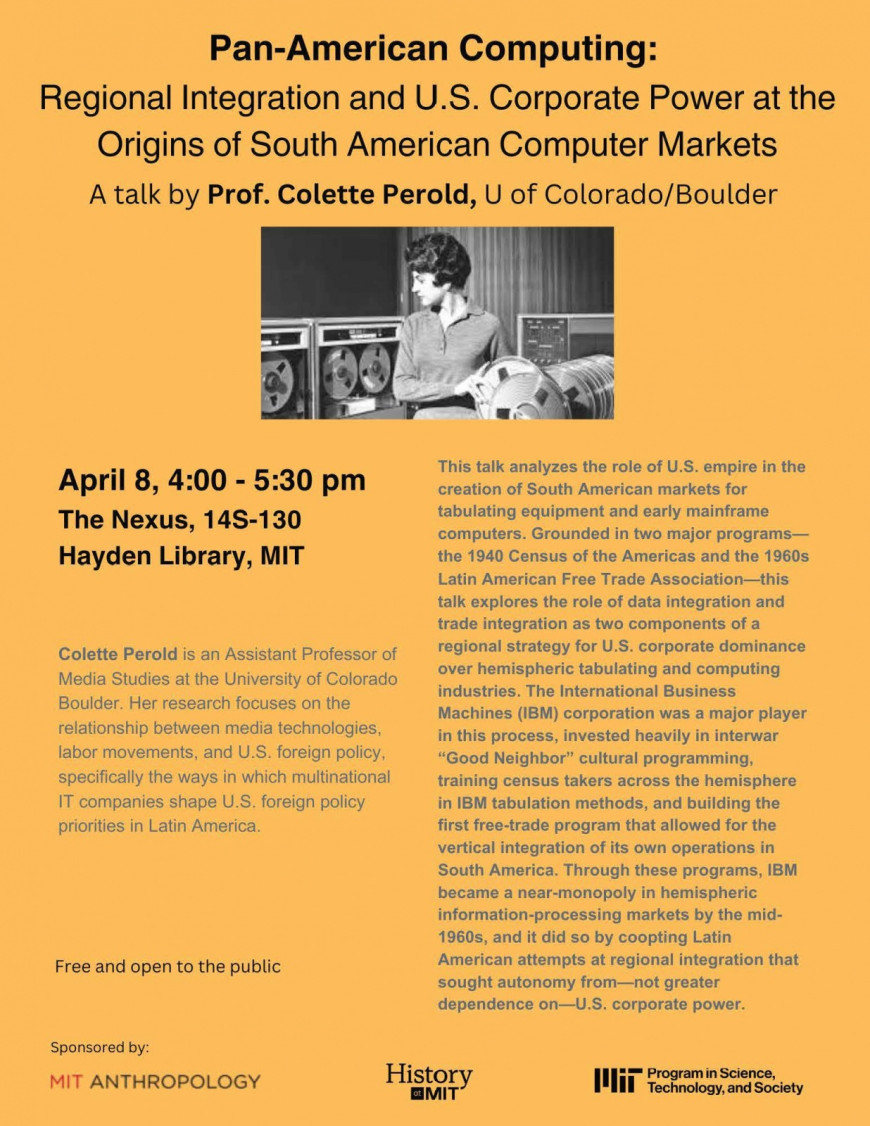Pan-American Computing: Regional Integration and U.S. Corporate Power at the Origins of South American Computer Markets

Colette Perold
Assistant Professor of Media Studies at the University of Colorado Boulder
Monday, April 8, 2024 4:00 - 5:30 PM The Nexus in Hayden Library, 14S-130
Abstract:
This talk analyzes the role of U.S. empire in the creation of South American markets for tabulating equipment and early mainframe computers. Grounded in two major programs—the 1940 Census of the Americas and the 1960s Latin American Free Trade Association—this talk explores the role of data integration and trade integration as two components of a regional strategy for U.S. corporate dominance over hemispheric tabulating and computing industries. The International Business Machines (IBM) corporation was a major player in this process, invested heavily in interwar “Good Neighbor” cultural programming, training census takers across the hemisphere in IBM tabulation methods, and building the first free-trade program that allowed for the vertical integration of its own operations in South America. Through these programs, IBM became a near-monopoly in hemispheric information-processing markets by the mid-1960s, and it did so by coopting Latin American attempts at regional integration that sought autonomy from—not greater dependence on—U.S. corporate power.
Bio:
Colette Perold is an Assistant Professor of Media Studies at the University of Colorado Boulder. Her research focuses onthe relationship between media technologies, labor movements, and U.S. foreign policy, specifically the ways in which multinational IT companies shape U.S. foreign policy priorities in Latin America. Her article “IBM’s World Citizens: Valentim Boucas and the Politics of IT Expansion in Authoritarian Brazil” won the 2021 Mahoney Prize for outstanding article in the history of computing and information technology from the Society for the History of Technology’s Special Interest Group for Computing, Information, and Society. She has held the Charles Babbage Institute’s Tomash Fellowship, the Society for the History of Technology’s Brooke Hindle Postdoctoral Fellowship, and as of August 2024 will hold an NEH Fellowship.